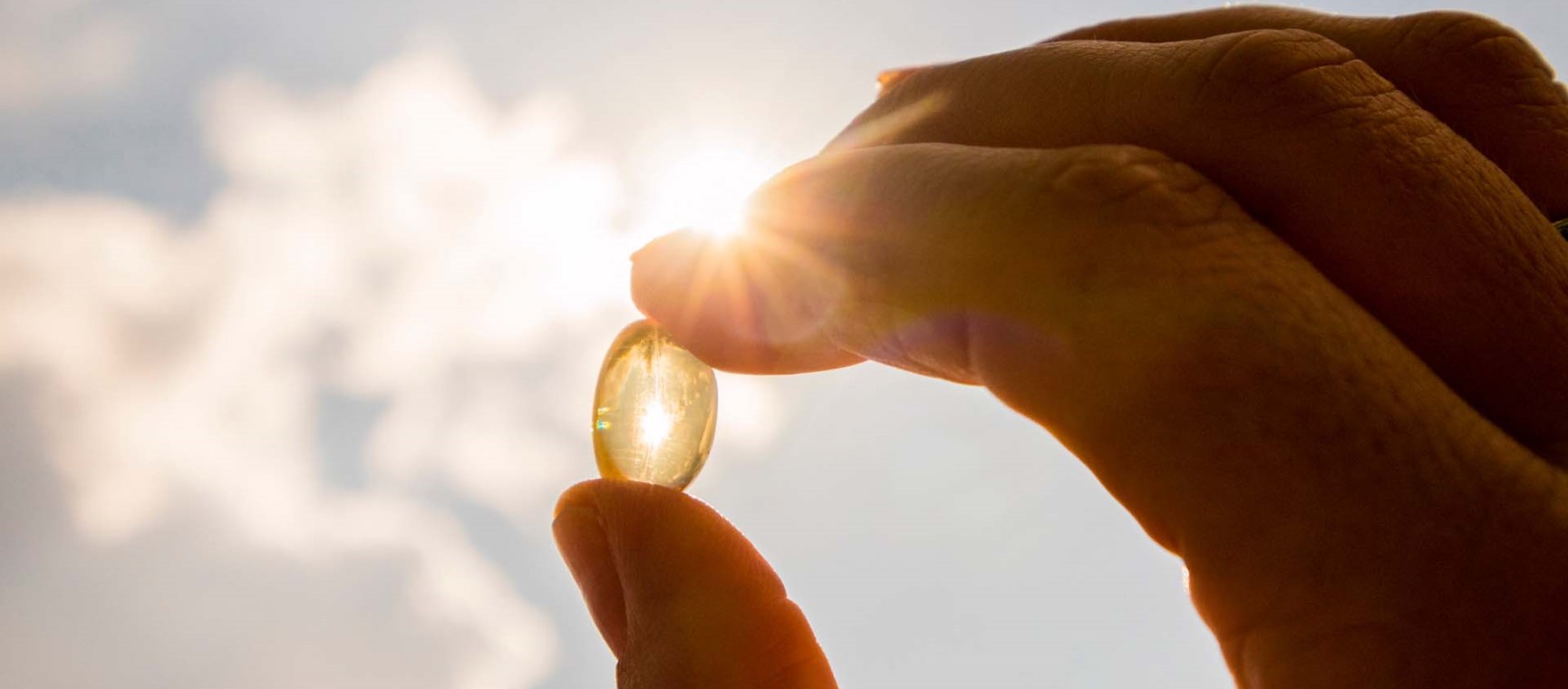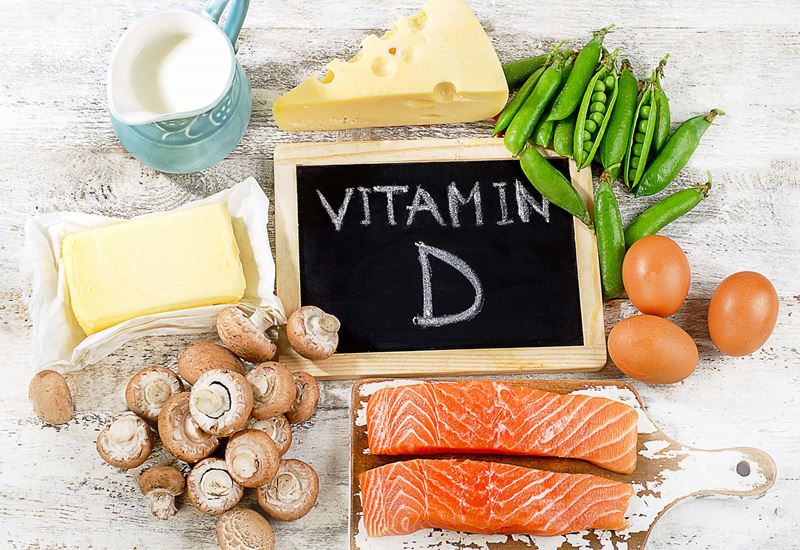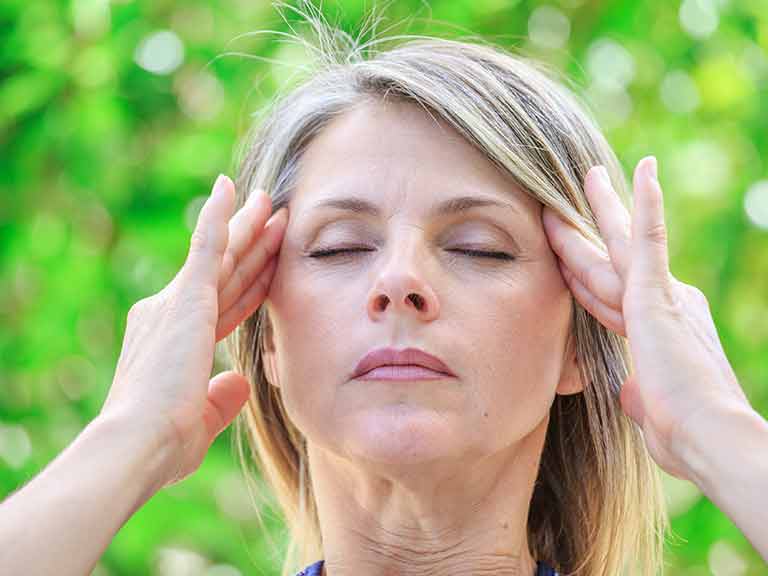Vitamin D could counter ageing: why the over-65s should take a supplement every day
A daily dose could help stave off age-related illness, and why we should take vitamin D year-round as we get older.

A daily dose could help stave off age-related illness, and why we should take vitamin D year-round as we get older.

Vitamin D, the sunshine vitamin, is essential to keep our bones strong and healthy. But studies are revealing it also has an important role in anti-ageing.
A study published this month says that taking a vitamin D supplement could help turn back the clock on biological ageing and help stave off diseases including Alzheimer’s and cancer.
Yet half of us don’t realise that we need to take a supplement every day in winter – and year round if we are over 65.
The new study of more than 1,000 adults aged over 50, published in the American Journal of Clinical Nutrition, found that those who took the vitamin every day saw less age-related damage to their DNA, which has been linked to diseases including Alzheimer’s and cancer.
The study concluded that a four-year course of vitamin D supplementation “prevented the equivalent of nearly three years of ageing”.
The scientists used blood tests to measure the length of the participants’ telomeasures – the caps on the end of our DNA that help prevent them from degrading. These naturally shorten with age and are linked to the development of age-related diseases.
Dr JoAnn Manson, chief of the division of preventive medicine at Brigham and Women’s Hospital, a Harvard-affiliated hospital, co-authored the study, dubbed VITAL.
She said: “VITAL is the first large-scale and long-term randomised trial to show that vitamin D supplements protect telomeres and preserve telomere length.
“This is of particular interest because VITAL had also shown benefits of vitamin D in reducing inflammation and lowering risks of selected chronic diseases of aging, such as advanced cancer and autoimmune disease.”
Given that the study was relatively short, the team said the results were “promising” and they’ve called for longer research to be conducted.
Registered Dietitian Clare Thornton-Wood explained why vitamin D is so important, especially as we get older.
She said: “Our ability to synthesise vitamin D from the sun decreases with age and it is vital for strong, healthy bones as it regulates the absorption of calcium from food. It also plays a role in mood and metabolism.
“Low levels have been linked to increased risk of cardiovascular disease and multiple sclerosis.
“A vitamin D deficiency can also result in lethargy, tiredness and bone pain.”
The NHS says that between October and early March all of us need to take a supplement because the sun is not strong enough to produce it in our bodies.
But the over-65s need to take it year round.
Thornton Wood says: “The UK government recommends all people aged over 65 years should take 10 micrograms of vitamin D all year round.”

She adds that if you have dark skin, are obese, housebound or wear clothing that covers the majority of your body for cultural reasons, you will also need a year-round supplement whatever your age.
Sunscreen can also block absorption, but Thornton-Wood says we shouldn’t ditch those creams as they are important in preventing sun damage and skin cancer.
“Exposure of just 30 minutes a day on the exposed skin of your arms, legs, hands and face should be enough,” she says. “But the further north you travel, the weaker the sun and the less vitamin D is produced.”
New research has shown that 13% of over-65s in the UK are deficient in vitamin D.
The recommended dosage according to the NHS is 10 micrograms /day for adults and children aged over one year, while for babies up to a year old 8.5-10 micrograms/day is ideal.
HSIS nutritionist Dr Emma Derbyshire said: “We know that vitamin D is essential for bone and muscle health and there is a growing body of evidence pointing to benefits for the gut, cardiometabolic health and respiratory function.
“As a result, we all need to be taking a multivitamin and multimineral with vitamin D or vitamin D supplement daily and all year around with at least 10 micrograms of vitamin D, together with ensuring we consume foods containing vitamin D too.”
She warns that potentially you can take too much Vitamin D, so stick to the recommended daily dosage.
Some medications, such as weight-loss drugs, can interfere with absorption and drugs such as steroids may lower your vitamin D levels.
It’s best to discuss medication and supplements with your pharmacist or healthcare professional.
You can also help your intake by adding foods to your diet which are rich in vitamin D.

Are you retiring at the wrong age? The best age to retire for your body, brain, happiness and pocket.


Everything you need to know about the lung infection, and how you could be ill with “walking” pneumonia without realising it.

Strong calves for a strong mind: how they support our circulation and brain health, with easy moves to strengthen yours at home.


Our GP Dr Mark Porter explains what can cause itchy skin, which is a common problem as we get older.

Worried you’ve morphed into Victor Meldrew? Find out how to battle that bad mood, and what to do if you’re stuck with a grouchy loved one.

The benefits of heat and cold therapy, and how Nordic bathing won over our nervous writer.

Here’s how to spot the symptoms of heat disease and reduce your danger.


The NHS winter vaccination campaign kicks off next week. Here’s the lowdown on what you need to book.

Pilates for back pain – what to do if you are suffering, and five gentle exercises that could help.

Dizziness or vertigo: a sensation of spinning, can stop us doing everyday things for fear of falling. Try these tips to stop feeling dizzy


You don’t have to put up with bladder leaks. We try out the latest pelvic floor gadgets for men and women.

Cataracts are a normal part of ageing. Learn how to spot the signs – and when it’s time to consider surgery.